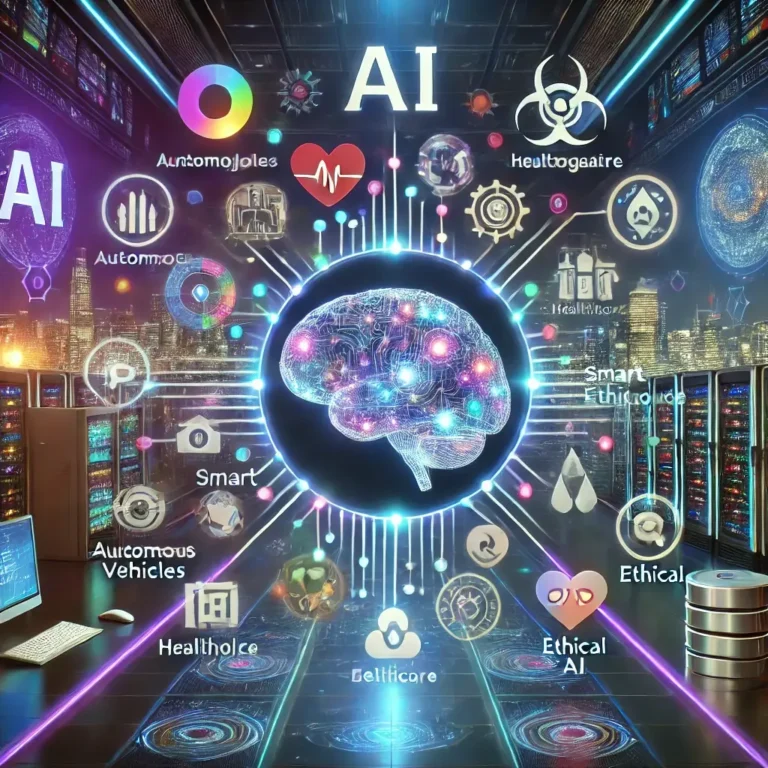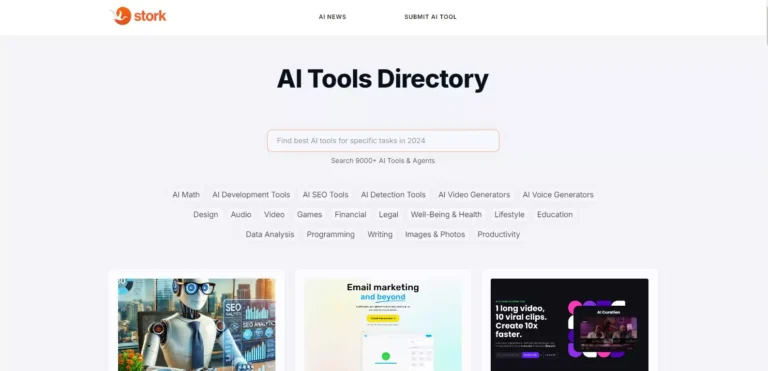Best Programming Languages to Learn in 2024: Your Ultimate Guide
The world of best programming languages is evolving at an unprecedented pace, and the choice of programming languages available today can be overwhelming. Whether you’re a beginner looking to start your coding journey or a seasoned developer exploring new opportunities, choosing the right language can significantly impact your career and projects.
In this comprehensive guide, we’ll dive into the best programming languages in 2024, exploring their use cases, advantages, and why you should consider learning them.
Why Choosing the Best Programming Languages Matter
Programming languages are the backbone of software development. Your choice influences:
- Project Feasibility: Some languages are better suited for certain tasks.
- Career Opportunities: Different industries favor specific languages.
- Ease of Learning: Some languages have a gentle learning curve, while others require prior knowledge.
1. Python: The All-Rounder
Overview
Python continues to reign as one of the most versatile and widely-used best programming languages in 2024. It’s an excellent choice for both beginners and experienced developers due to its readability and simplicity.
Key Features
- Versatile: Ideal for web development, data analysis, AI, and automation.
- Extensive Libraries: Libraries like NumPy, Pandas, and TensorFlow streamline development.
- Community Support: A vast and active community ensures plenty of resources and assistance.
Use Cases
- Web Development: Frameworks like Django and Flask.
- Data Science: Dominates the field with tools like Jupyter and Matplotlib.
- Artificial Intelligence: Widely used in ML and AI projects.
Why Learn Python?
It’s beginner-friendly, in high demand across industries, and offers robust earning potential.
2. JavaScript: The King of the Web
Overview
JavaScript is indispensable for modern web development. From front-end to back-end, it powers interactive and dynamic websites.
Key Features
- Client-Side & Server-Side: Works seamlessly with frameworks like Node.js.
- Rich Ecosystem: Boasts libraries like React, Angular, and Vue.js.
- High Performance: Constantly evolving with updates like ES2023.
Use Cases
- Front-End Development: Enables dynamic content.
- Server-Side Programming: With Node.js, it handles server-side logic.
- Mobile App Development: Frameworks like React Native support app creation.
Why Learn JavaScript?
With web development’s steady growth, JavaScript skills ensure job security and versatility.
3. Java: The Enterprise Powerhouse
Overview
Java has been a staple in enterprise-level applications for decades. Known for its robustness and scalability, it remains relevant in 2024.
Key Features
- Platform Independence: Write Once, Run Anywhere (WORA) approach.
- Security: Built-in features make it a top choice for secure applications.
- Rich Ecosystem: Libraries and tools for nearly every use case.
Use Cases
- Enterprise Solutions: Banking and healthcare rely heavily on Java.
- Android Development: Powers Android apps via Android Studio.
- Big Data: Plays a significant role in frameworks like Apache Hadoop.
Why Learn Java?
Java’s maturity and widespread adoption make it an evergreen choice for developers.
4. C#: The Game Developer’s Dream
Overview
C# (C-sharp) is a modern, object-oriented best programming languages popular in game development and Microsoft ecosystems.
Key Features
- Unity Integration: A favorite for game developers using Unity Engine.
- Strong Typing: Ensures fewer runtime errors.
- Interoperability: Seamlessly integrates with other Microsoft tools.
Use Cases
- Game Development: Unity-powered games.
- Desktop Applications: Built on Windows frameworks.
- Web Applications: ASP.NET simplifies development.
Why Learn C#?
If you’re interested in gaming or working within the Microsoft ecosystem, C# is a must.
5. Rust: The Performance Prodigy
Overview
Rust has gained immense popularity for its focus on safety and performance. Developers love it for its zero-cost abstractions and memory safety without garbage collection.
Key Features
- Memory Safety: Prevents common bugs like null pointer dereferencing.
- High Performance: Competes with C++ in system programming.
- Concurrency: Excellent for handling multiple tasks simultaneously.
Use Cases
- System Programming: Ideal for operating systems and browsers.
- Web Assembly: Supports high-performance web applications.
- Game Engines: Combines speed and safety.
Why Learn Rust?
Rust is perfect for system-level programming and developers looking for cutting-edge performance and security.
6. Go (Golang): The Cloud Favorite
Overview
Go is Google’s brainchild, designed for simplicity and scalability. It’s a leading choice in cloud computing and DevOps.
Key Features
- Concurrency: Handles multiple processes efficiently.
- Lightweight Syntax: Simplifies learning and development.
- Fast Compilation: Ideal for large-scale systems.
Use Cases
- Cloud Applications: Docker and Kubernetes are built in Go.
- Microservices: Excellent for scalable architectures.
- Web Development: Frameworks like Gin streamline the process.
Why Learn Go?
As cloud computing dominates, Go’s relevance is only growing.
7. Kotlin: The Modern Android Champion
Overview
Kotlin is a modern, concise language designed to replace Java in Android development. Its compatibility with Java makes it a seamless transition.
Key Features
- Interoperability: Works seamlessly with Java codebases.
- Conciseness: Reduces boilerplate code.
- Safety: Eliminates null pointer exceptions.
Use Cases
- Android Apps: The official language for Android development.
- Web Development: Frameworks like Ktor support server-side apps.
- Cross-Platform: Enables shared codebases for iOS and Android.
Why Learn Kotlin?
If you’re interested in mobile app development, Kotlin is a future-proof choice.
8. Swift: The iOS Specialist
Overview
Swift is Apple’s brainchild for developing iOS and macOS applications. Its clean syntax and performance make it a favorite for Apple developers.
Key Features
- Speed: Comparable to C++ in performance.
- Interactive Playground: Simplifies learning and testing code.
- Open-Source: Encourages community-driven improvements.
Use Cases
- iOS and macOS Development: Powers apps across Apple’s ecosystem.
- Server-Side Development: Frameworks like Vapor enable server applications.
Why Learn Swift?
For aspiring Apple developers, Swift is non-negotiable.
9. PHP: The Backend Veteran
Overview
PHP powers a significant portion of the web. Though newer technologies exist, PHP remains a staple in server-side development.
Key Features
- Easy Integration: Works well with various databases.
- Framework Support: Laravel and Symfony simplify development.
- Dynamic Content: Excels are used to create dynamic web pages.
Use Cases
- Content Management Systems (CMS): Powers WordPress and Drupal.
- E-commerce: Widely used in platforms like Magento.
- APIs: Simplifies server-side logic.
Why Learn PHP?
If you’re into web development, PHP skills are always in demand.
10. TypeScript: JavaScript, But Better
Overview
TypeScript is a superset of JavaScript, adding type safety and advanced features to make coding more robust.
Key Features
- Type Safety: Reduces runtime errors.
- Scalability: Ideal for large codebases.
- Integration: Compatible with JavaScript projects.
Use Cases
- Web Development: Enhances frameworks like Angular and React.
- Backend Development: Works well with Node.js.
Why Learn TypeScript?
For developers who love JavaScript but need a better structure, TypeScript is invaluable.
Honorable Mention
- C++: For high-performance applications and game development.
- Ruby: Ruby is popular with startups due to Rails.
- MATLAB: Essential for engineers and scientists.
How to Choose the Best Programming Languages for You
- Define Your Goals: Are you building apps, diving into data, or developing games?
- Consider Demand: Research job markets to see in-demand skills.
- Ease of Learning: Some best programming languages are easier for beginners.
Conclusion
In 2024, the best programming languages offers diverse options for developers. Whether you’re eyeing a career in web development, game design, or data science, there’s a language tailored to your needs. Start with Python or JavaScript for versatility or specialize with Rust, Kotlin, or Swift for niche domains. The key is to keep learning and evolving alongside the technology.
Ready to code your future? Choose a best programming languages and start your journey today!





